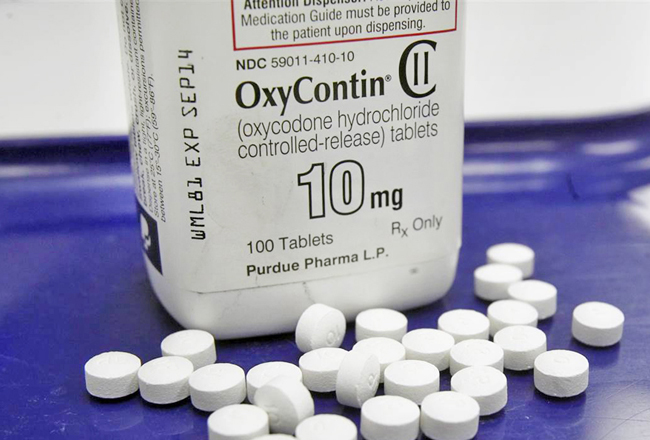Members of the Sackler family are included in an expanded, amended lawsuit filed against Stamford’s Purdue Pharma by Connecticut Attorney General William Tong.
The amended complaint alleges new details of actions that Purdue deployed in Connecticut to push its addictive opioids and takes direct aim at Purdue’s recent threats of bankruptcy. The lawsuit seeks to claw back funds transferred from Purdue to the Sackler family, as well as a court order to prevent any further transfer of funds.
 The amended lawsuit states the maker of OxyContin and other addictive pain relievers, as well as members of the Sackler family, told doctors addiction was “not caused by drugs,” but instead was the result of “susceptible individuals.” Purdue said “appropriate” patients would not get addicted, according to the suit.
The amended lawsuit states the maker of OxyContin and other addictive pain relievers, as well as members of the Sackler family, told doctors addiction was “not caused by drugs,” but instead was the result of “susceptible individuals.” Purdue said “appropriate” patients would not get addicted, according to the suit.
Founded in 1892, Purdue was acquired in 1952 by brothers Mortimer and Raymond Sackler. Although they have since died ”“ Raymond most recently in 2017 ”“ the company is still controlled by their descendants. Raymond”™s son Richard, a former chairman and president of Purdue, and seven other members of the family, all listed as “a former member” of the company”™s board, are among 21 additional persons or entities accused of fraud in the suit.
Purdue, which has publicly considered filing for bankruptcy protection in order to avoid prosecution in the lawsuits it is facing from 34 states and nearly 2,000 cities, recently settled a suit filed against it by the state of Oklahoma for $270 million. Tong, however, indicated that a settlement will not be forthcoming in the Connecticut action.
“We will not allow Purdue Pharma to cry poverty after illegally transferring hundreds of millions of dollars to members of the Sackler family ”” unearned funds these individuals reaped as Connecticut families suffered,” he said. “Our amended complaint takes direct aim at Purdue’s efforts to shirk responsibility through bankruptcy. We are seeking a court order to claw back funds and block any further attempt to line the Sacklers’ pockets with money that should be used to correct the crisis they have created.
“Our investigation has left no room for doubt,” he said. “Purdue and the Sacklers ignored all human cost while pushing deadly opioids in blind pursuit of profit. They must be held accountable for the resources necessary for long-term recovery and treatment, to stop this devastating epidemic from spreading.”
The complaint amends an earlier lawsuit filed by Connecticut on Dec. 20, 2018, that alleges that Purdue peddled a series of falsehoods to push patients toward its opioids, reaping massive profits from sales while opioid addiction skyrocketed in Connecticut and across the nation. The initial complaint alleged four counts of violations of the Connecticut Unfair Trade Practices Act, seeking damages, civil penalties, forfeiture of ill-gotten profits, restitution, and permanent injunctive relief. The amended complaint adds a fifth count: fraudulent transfer.
In addition to the fifth count, the amended complaint adds six new defendants, including five Sackler-held companies: Purdue Holdings LP, PLP Associates Holdings LP, BR Holdings Associates LP, Rosebay Medical Company LP and Beacon Co. All are entities owned and controlled by trusts for the benefit of members of the Sackler family.
The amended suit alleges that over the past decade, members of the Sackler family voted to distribute hundreds of millions of dollars in opioid profits from Purdue to those companies. At the same time those transfers were occurring, Purdue’s own attorney and chief financial officer admitted in records obtained by Connecticut that claims against Purdue by the states would subject Purdue to the “billions” faced by “Big Tobacco in the 1990s,” according to the suit.
“Purdue Pharma and the individual former directors of the company vigorously deny the allegations filed today in Connecticut and will continue to defend themselves against these misleading attacks,” the company said in a statement.
Connecticut’s lawsuit is based on a state law, the Connecticut Unfair Practices Act, which imposes a penalty of up to $15,000 a day on violators.




















